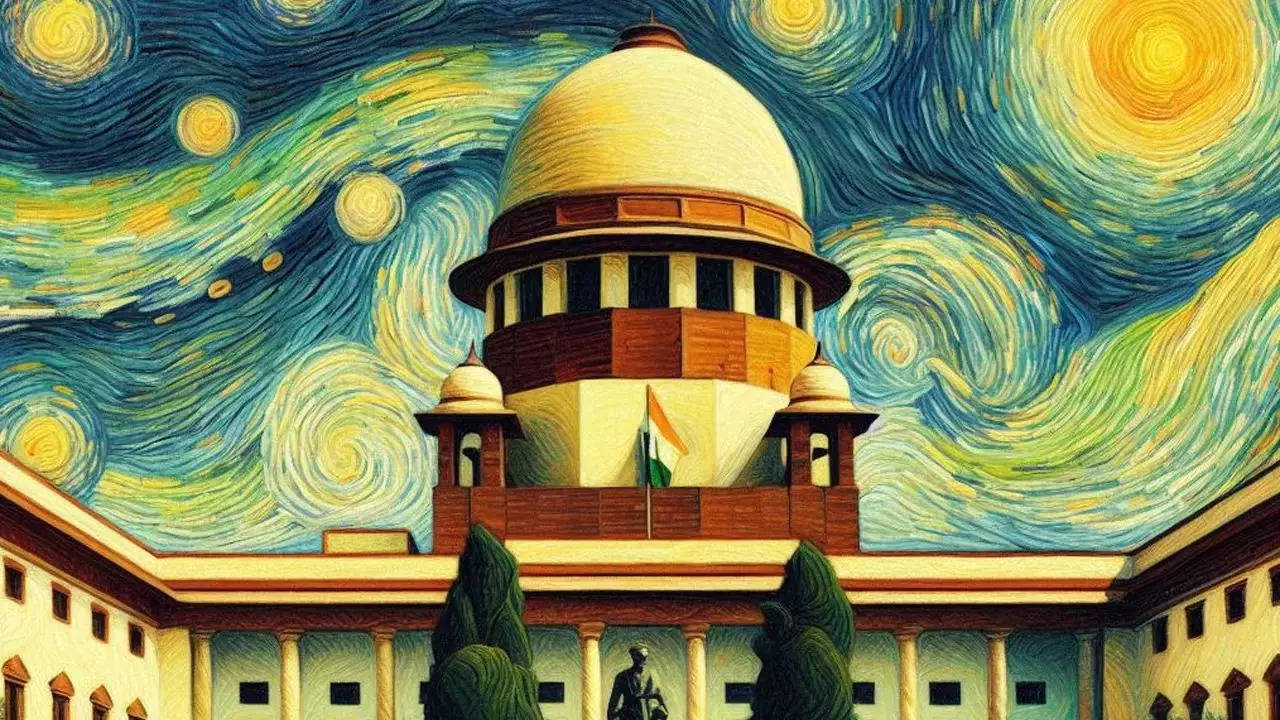Delhi's Garbage Crisis: A Ticking Time Bomb?
The Supreme Court of India recently slammed the Municipal Corporation of Delhi (MCD) for its shockingly poor handling of the city's massive waste problem. With over 3,000 tons of untreated garbage piling up daily, Delhi is drowning in trash. The court's warning? This isn't just a messy problem; it's a ticking time bomb threatening the health and well-being of millions. Prepare to be shocked by the details!
Mountains of Waste: Delhi's Unbearable Burden
Delhi's garbage crisis isn't a new headline. We've seen reports about overflowing landfills, but the scale of untreated waste – a staggering 3,000 tons every single day – is alarming. This isn't just about overflowing bins; it's about the environmental damage caused by untreated waste, creating breeding grounds for diseases and pollution in the air and water. We're talking about serious health risks, from respiratory issues caused by air pollution to water contamination and vector-borne diseases. The impact on the city's ecology and quality of life is severe. Where does this massive amount of garbage end up, and why can't the authorities cope?
Landfills Reaching Breaking Point
Landfills like Bhalswa and Ghazipur are already overflowing. They're not just eyesores; they contribute significantly to air and water pollution. The overflowing landfills represent not merely a problem of waste disposal, but also a growing public health crisis. The lack of effective waste processing methods adds further strain on an already fragile system, threatening the delicate ecological balance of the region.
Waste Management Failure: A Systemic Issue
The MCD's assertion that it will take until December 2027 to clear the backlog highlights a systemic failure in waste management planning and execution. The city's waste management system has seemingly lost control of the situation. This systemic dysfunction creates significant risks in the long term, such as catastrophic landfill failures, and widespread contamination of the environment and the groundwater resources.
The Supreme Court Steps In: A Call for Action
The Supreme Court's intervention is a critical step towards holding the authorities accountable. The court is now demanding an explanation, even threatening drastic measures such as a construction halt. This reflects a serious concern about the inaction on this crucial public health issue. But how can a temporary halt to construction really solve the larger problem of decades of poor waste management? What else can we do?
A Need for Immediate Solutions
We cannot keep ignoring this monumental issue. We need immediate solutions. The court has called for a collaborative approach between the Centre and the Delhi government, urging coordinated efforts to tackle this crisis. A temporary solution could entail more investments in recycling, and waste processing, perhaps including advanced technologies to resolve this situation more effectively. A long-term solution necessitates an integrated, robust, and sustainable urban solid waste management plan and should incorporate recycling strategies as a key aspect.
The Search for Accountability: A Systemic Shift Needed
The Supreme Court's criticism is about more than just a pile of garbage; it is about the urgent need for radical improvement in public governance, accountability, and long-term environmental planning. This involves not just cleaning up existing problems but reforming existing methods, increasing investments in recycling initiatives, and setting in place a more effective and efficient regulatory mechanism.
The Path Forward: Collaborative Action
The long-term fix for Delhi's waste problem requires multiple solutions. Proper waste segregation at the source is critical, so is the expansion of recycling facilities to reduce the sheer volume heading to landfills. Moreover, the need for efficient and accountable governance for timely garbage collection cannot be stressed enough.
Investing in Green Technologies
Delhi needs to embrace modern technology such as waste-to-energy plants. These aren't just cleaner but can contribute to generating electricity from the waste, offering an economic as well as an environmental solution.
Community Engagement is Crucial
No successful waste management system can work without community involvement. Public awareness campaigns are essential to promote responsible waste disposal habits such as responsible garbage disposal, segregation of dry and wet waste, and avoiding the indiscriminate littering of plastics.
Take Away Points
- Delhi's waste management crisis is dire, with thousands of tons of untreated waste daily.
- The Supreme Court's intervention highlights a significant failure in governance and environmental protection.
- Collaborative efforts between the Centre and Delhi government are crucial to tackle the issue.
- Long-term solutions require improved waste segregation, recycling investments, and green technologies.









